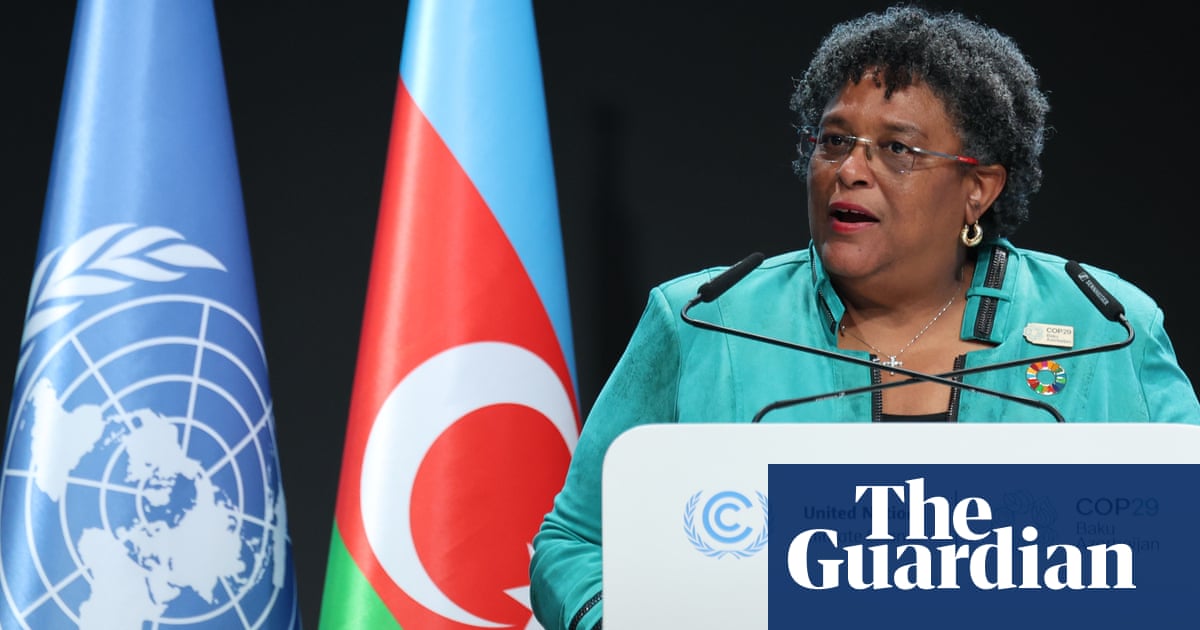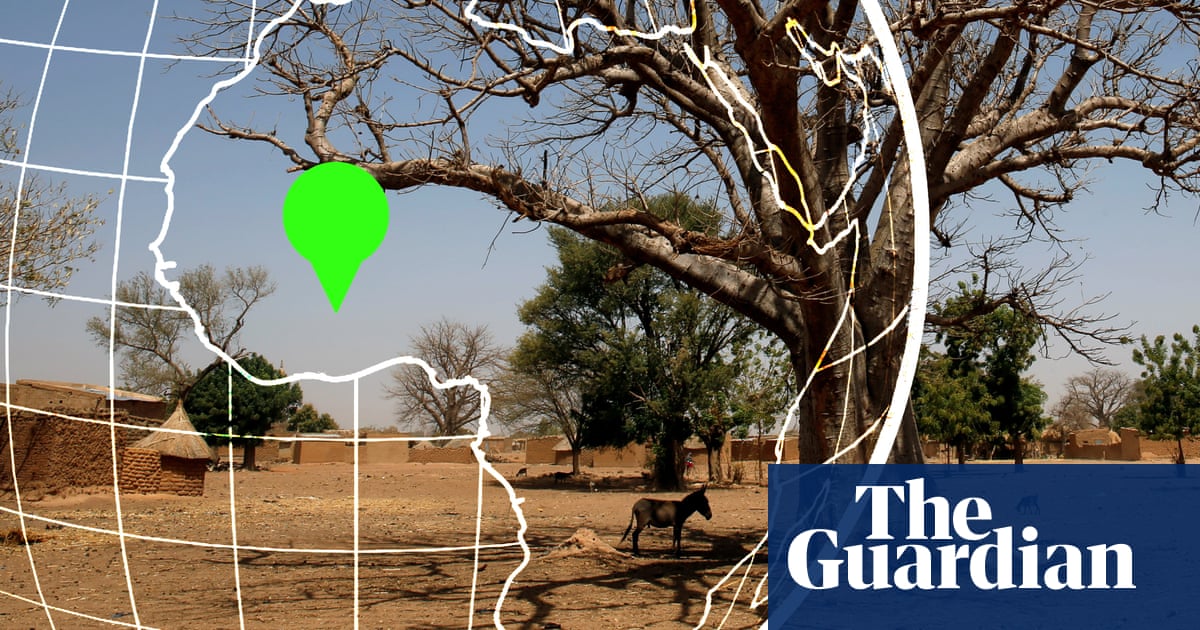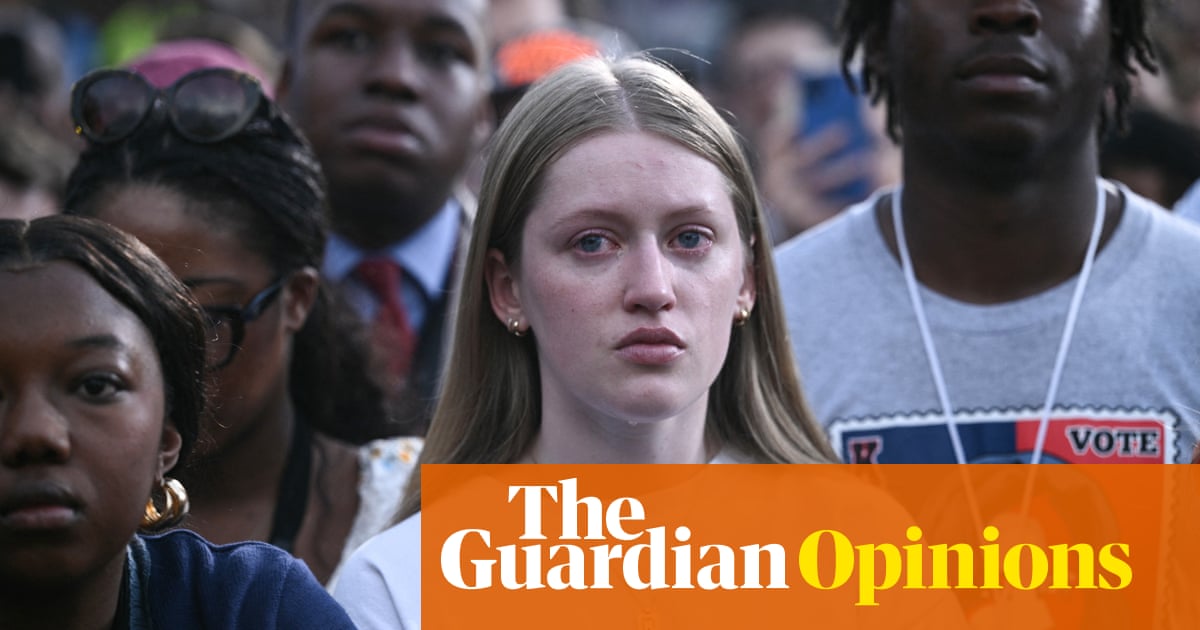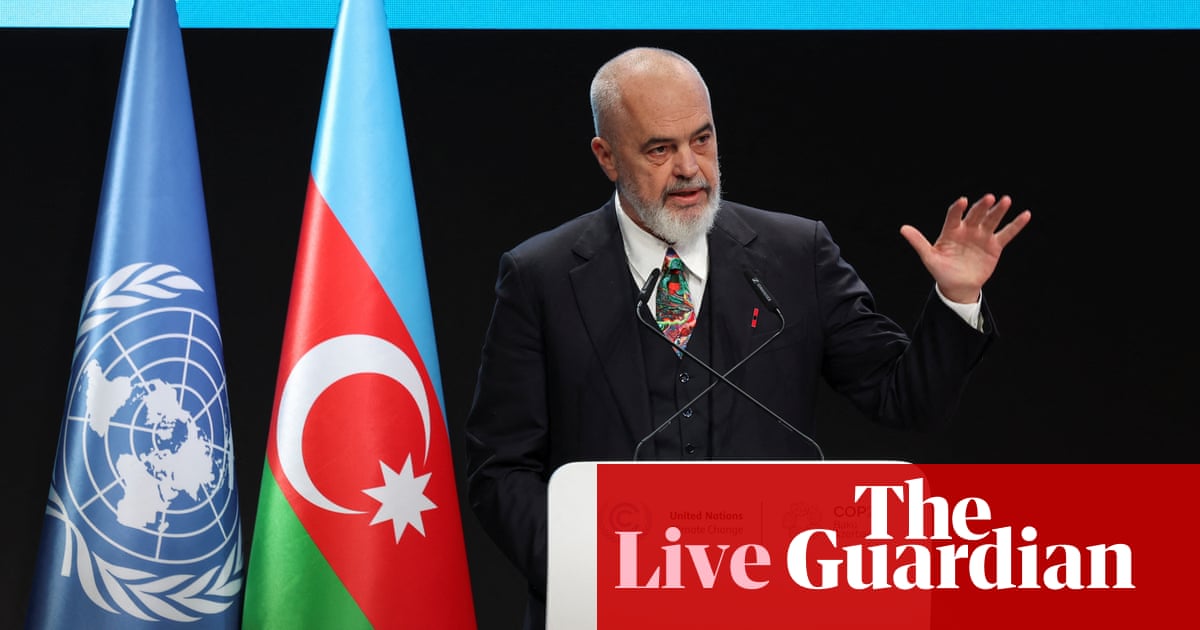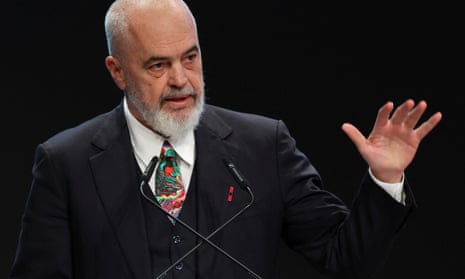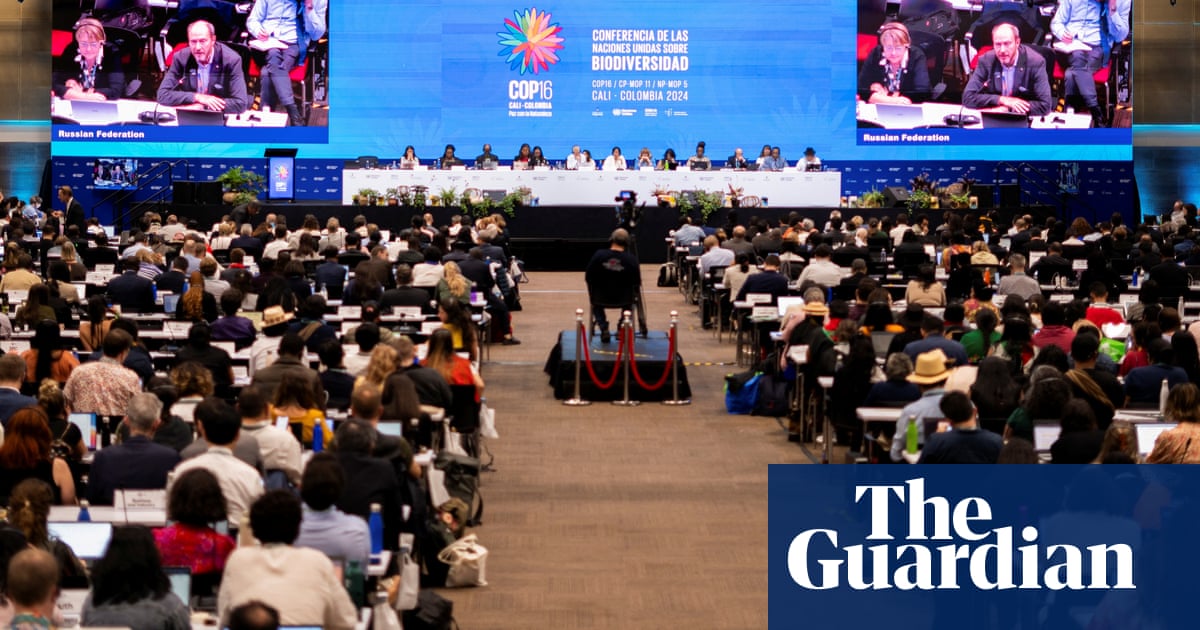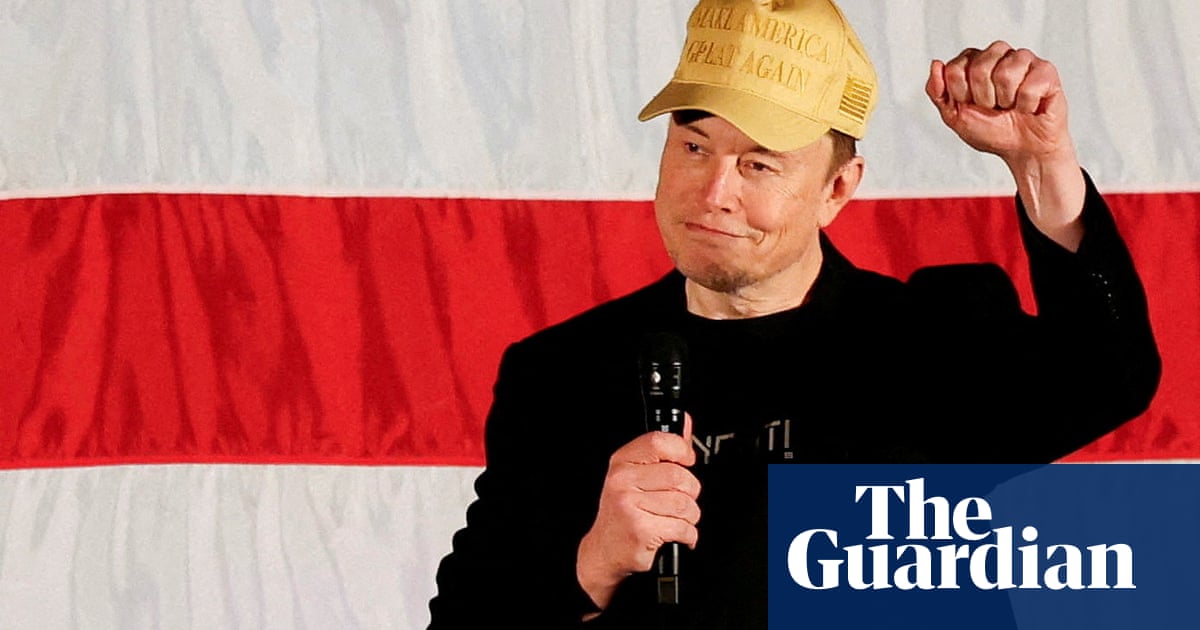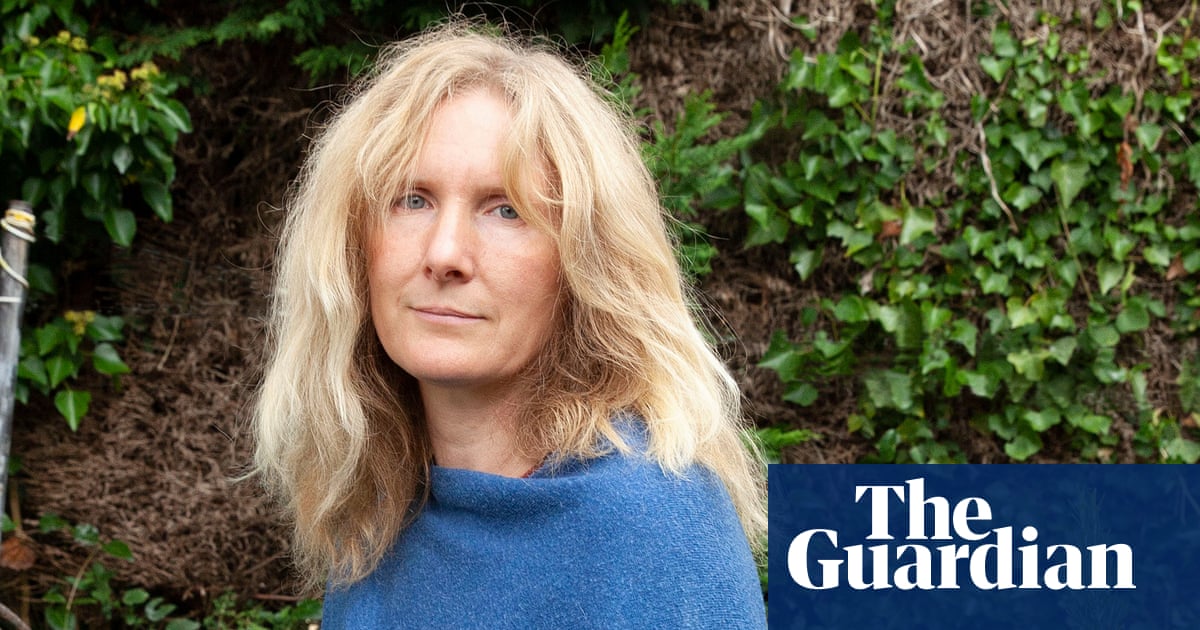Mia Mottley, the climate-championing prime minister of Barbados, has invited Donald Trump to a face-to-face meeting where she would seek “common ground” and persuade him that climate action was in his own interests.
“Let us find a common purpose in saving the planet and saving livelihoods,” she told the Guardian at the UN’s Cop29 climate summit in Azerbaijan. “We are human beings and we have the capacity to meet face-to-face, in spite of our differences. We want humanity to survive. And the evidence [of the climate crisis] we are seeing almost weekly now.”
Only by personal meetings among world leaders can the massive changes needed on climate action be achieved, she believes. “President Trump has been very clear about the importance of that kind of face-to-face conversation in the things that he believes that he can solve as well.”
Mottley, the prime minister who took Barbados out of the Commonwealth realm to be a republic, has been an electrifying presence at recent UN climate summits since she took to the stage at Cop26 in Glasgow in 2021 with an impassioned speech demanding world leaders “try harder” to avoid passing a death sentence on her country. Since then, she has gained a global reputation as a formidable champion of the developing countries most affected by climate breakdown.
She has also led a movement among developing and some developed countries to change the global financial system to generate the funds needed to shift the world to a low-carbon economy.
The re-election of Trump has thrown a deep shadow over Cop29, which kicked off on Monday in Baku. Scores of world leaders flew in for the summit, but the heads of government of most of the world’s biggest economies stayed away.
Delegates fear Trump will withdraw the US from the Paris climate agreement, dismantle regulations and climate targets, and push forward with plans to “drill, baby, drill” for more fossil fuels. Scientists have warned that if he follows through on his campaign promises the world has little hope of limiting global heating to 1.5C above preindustrial temperatures.
Argentinian negotiators representing the government of climate science denier Javier Milei were ordered on Wednesday to withdraw from Cop29 after just three days, adding to concerns about the stability of the Paris agreement.
But Trump had shown a willingness to deal with crises before, Mottley noted. “I think that there are possibilities for discussion. The same warp speed that President Trump addressed the issue of vaccines and the development of a vaccine is the same warp speed that we want to encourage him and others to look at for decarbonising technology,” she said.
She also believes she could show Trump that the US would benefit economically from tackling the climate crisis.
For instance, she pointed to the flaring of methane from oil and gas production sites. Installing relatively simple equipment to catch and use the methane instead would be profitable, according to the International Energy Agency, which should appeal to Trump.
“Why would you want to flare gas and lose money, when you can use gas and earn money?” she asked.
She also pointed to climate migration. “If I can’t live because I can’t farm because I don’t have access to water, or floods are now coming with an intensity and a regularity that makes it impossible for me to sustain my way of life, I’m going to shift where I’m living from.
“Or if I have no ability to access insurance, and insurance is critical to my ability to get a loan, I’m going to have to move from where I’m operating. So the volume of climate migration hopefully will wake up those who have been slow to see that this must be a win-win.”
Mottley argued Trump would also find it hard to fully reverse the Inflation Reduction Act, which incentivises clean energy, because many formerly depressed areas around the US, including traditionally Republican-voting ones, had seen new jobs and industries spring up because of it.
“We’ve had four years of municipalities, states and the private sector all making significant investments [in a low-carbon economy] in the US,” she said. “You are unlikely to see a U-turn on everything in as bald a way as some people fear.”
Cop29 is focused on the issue of climate finance, with the aim of setting out a new global goal that would deliver at least $1tn a year to developing countries, to help them cut greenhouse gas emissions and adapt to the impacts of climate-driven extreme weather.
Developed countries, however, are likely to pledge as little as a third of that in public finance from their overseas aid budgets and through the World Bank and similar institutions.
Mottley recognises rich countries will not stump up enough cash from their own budgets, though she argues they ought to do far more than they are now pledging. She has a set of proposals, known as the Bridgetown agenda after the capital of Barbados, that would generate more than $1tn a year in climate finance.
First off are reforms to the World Bank that would help free up hundreds of billions more in cash, and make loans cheaper and easier to access for the poorest and most vulnerable countries. Mottley says these moves are already under way, and have been successful so far.
She also wants new sources of revenue, called “global solidarity levies” – ways of raising money, particularly from polluting activities, that can go towards climate finance. These include a compulsory levy on business and first class flights, with a voluntary charge on economy flights that passengers could choose to pay (“because the agency of individuals matters”); a charge on international shipping; a charge on fossil fuel extraction that could reap $210bn a year; and a 0.1% levy on financial transactions that would raise $480bn a year.
“The reality is that global public goods need dedicated sources of global financing. And if we were to extend the polluter-pays principle, then those who contribute to the problem should help carry some of the burden. And those who make profit egregiously should also leave a little something on the table,” she said. “This is the one issue for sure that binds us all, because without a planet there will be no life that we can sustain.”
Mottley also favours a wealth tax on billionaires, which has been proposed by Brazil. “When you took the [Covid] vaccine injection, you didn’t even feel it. The super wealthy, if asked to leave a little something on the table, will not feel it.”
It is beyond the scope of Cop29, or the UN, to impose such levies, and they do not form part of the formal discussions in Azerbaijan. However, a special taskforce including Barbados, France, Spain, Kenya and others – but not, so far, the UK – is working to bring the proposals to reality.
One vitally important action that she hopes Cop29 will take is to focus on methane. Emissions of this gas – which comes from fossil fuel exploration, agriculture and waste, and is many times more powerful than CO2 in heating the planet – have been rising, but efforts to control them have so far had little impact.
“There needs to be a global methane agreement,” she said. Scientists have said that controlling methane could prevent 0.5C of heating in the short term. “It seems like it’s a no-brainer,” Mottley said.
